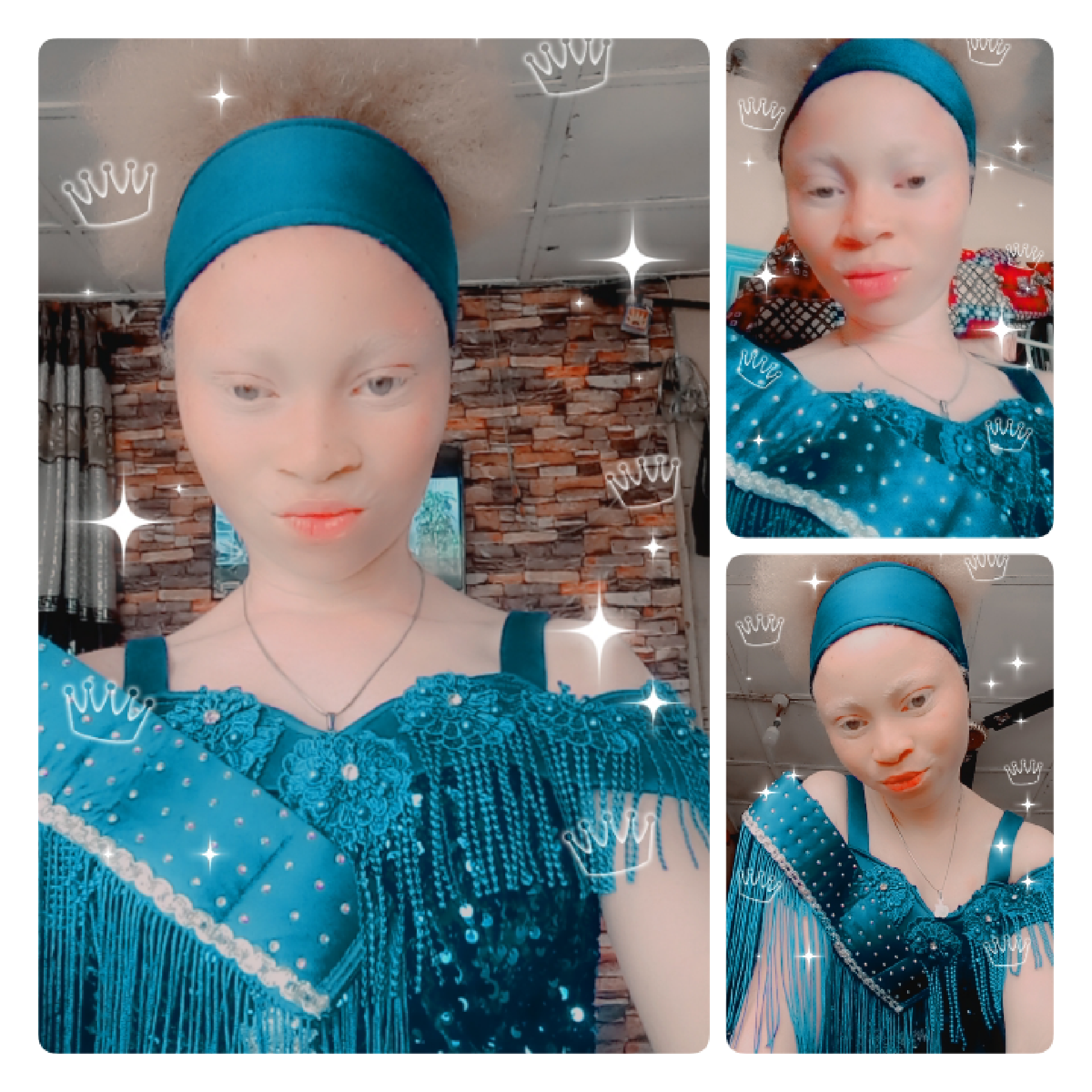Gamalie Happiness didn’t know that as a girl with albinism, she would grow up denying herself the pleasure of playing among children of her age. Born in Isoko South Local Government Area of Nigeria’s Delta State, life was tough for her as a child as she faced ridicule from her peers.
“As a child, I had only a few friends and my parents were there to give me all the love I needed,” Happiness said.
In 2011, when she was just six, her family relocated to Nigeria’s commercial capital, Lagos, and the discrimination continued.
Many children in the neighbourhood avoided her.
Happiness felt neglected and her family continued to cheer her with all their hearts. So their home was her only safe space, and she avoided going out to join the other children.
“I avoided them because my mom and dad told me to never intend on satisfying people just because I want them to be friends with me,” Happiness expressed.
Even in school, Happiness didn’t escape stigmatisation because of her eyes and complexion.
“From the first time I was enrolled, the students were mocking me. I experienced some emotional breakdown due to the neglect I went through,” she recounted.
A study estimated that 1 in 20,000 people worldwide are born with albinism, which according to experts, is a genetic disorder that causes a decrease in the production of a pigment called melanin in the skin, hair, and eyes, resulting in light colour or no colour.
It was her encounter with the Onome Akinlolu Majaro Foundation or OAM Foundation that changed the way she sees herself.
OAM Foundation is founded on the belief that enlightenment added with a little act of love and kindness can change the way people living with albinism are treated. The works of the foundation revolve around stimulating a movement that challenges socio-cultural stereotypes about albinism in Nigeria and the world
From 2015 to date, the OAM Foundation has been leading social campaigns in the promotion of the rights of persons with albinism. It was founded by Onome Okagabare Majaro, who herself is a woman with albinism, and the efforts of the foundation have yielded success stories where they were able to gather more women with albinism to be proud of their complexion while defying social norms and shining their light to better lives.
In June 2019, during one of the programs that was held by the OAM Foundation to commemorate International Albinism Awareness Day, Happiness and her mother registered their presence.
“My mom was the one who ran across their platform online and suggested we should attend it. My dad also agreed to it and that’s how we found ourselves there and the program made me see things differently because I’m usually a straightforward speaking person. But at that time I no longer feel at ease talking to those who aren’t like me apart from my close relatives,” she said. “So from that day, I started seeing the good about myself. I’m grateful to them. I felt loved there because they treated me like my family. My key takeaway was that I’m far beyond my complexion. And I took that word with me everywhere I went.”
Today, Happiness finds comfort in singing, drawing, and writing stories while she dreams of becoming a journalist.
“I want to use my voice as a voice for those who are like me and can’t speak. I want to be an inspiration to those who feel there is no hope because I know my life is a living testimony,” she told Prime Progress.
Happiness had just graduated from high school and now struggles to further her education due to lack of funds, but she still envisions a future where she can be able to better the lives of women with albinism.






